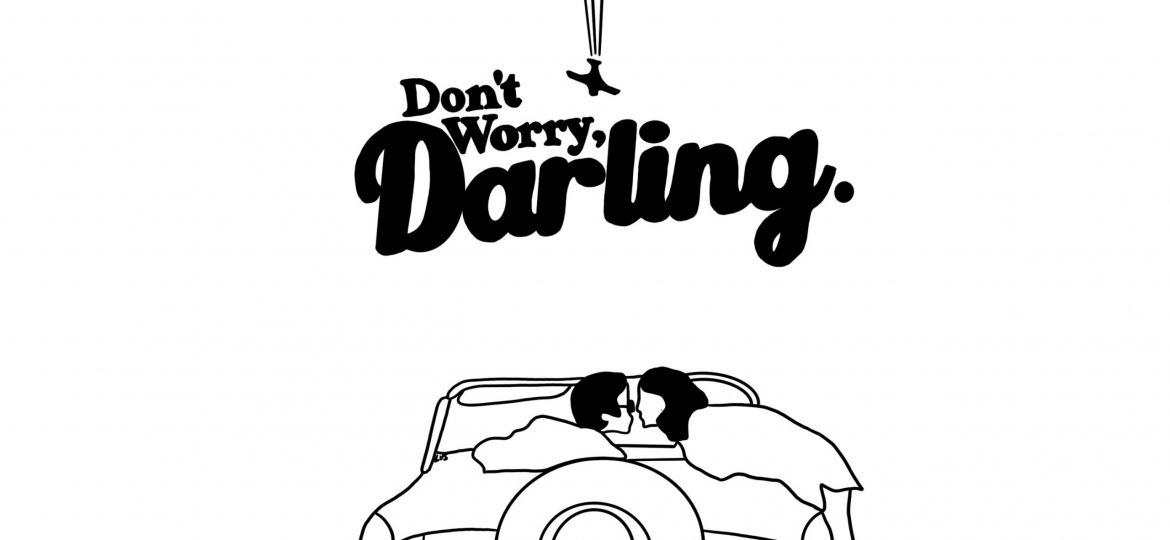
One of 2022’s most anticipated movies is “Don’t Worry Darling”, a psychological thriller and the second film from director Olivia Wilde. Since its first teaser trailer in September 2021, the film has been a subject of gossip for Oscar buzz, on-set drama, and subversive storytelling. It left fans all the more talkative after its public release on Sept. 23. The movie features Florence Pugh and Harry Styles as Alice and Jack, a young couple living in a utopian company town called Victory. Though their lives are idyllic and luxurious, Alice is on the brink of discovering something far more sinister lurking beneath the surface.
The movie is splendid in that it really does ‘‘feel like a movie’’ — hopefully I interpret Harry Styles correctly. It displays a vibrant Californian set, beautiful period-typical costumes from the 1950s, and a riveting storyline that keeps you on your toes until the very last second. It features your favorite superstars in their career-defining performances. Most notable is Florence Pugh’s stunning emotional arsenal on full display. In this way, it is reminiscent of an old Hollywood classic – the kind of movie you just have to see in theaters.
However, “Don’t Worry Darling” lacks the reconstructive, ‘‘time’s up’’ motif that Wilde advertised. “I was looking for a way to tell a story about what happens when someone is willing to sacrifice a system that serves them in order to do the right thing,” Wilde said in an interview with Variety. “I was also thinking a lot about my place in society as someone who could rage against the patriarchy but in many ways totally benefits from it.” She is correct, to an extent, in that the story is something we buy into and benefit from. My friends and I couldn’t stop talking about wanting to live there for the first five minutes. In the end the revealed theme is somewhat… obvious. It feels as if you have been waiting for some otherworldly conspiracy and end up with a message that “women should have rights.” It’s 2022 and if we’re just now learning that women deserve autonomy over their lives, then we’re further back than we think.
It is not to say the film is a failure in storytelling. In fact, it is a masterpiece in keeping its audience engaged and leaving us still theorizing days later. It certainly is a step in the right direction when it comes to the thriller genre. But the moments that needed the most leaning into were often abandoned, and the characters you hope to see most fleshed out lack the depth needed to make it a social commentary.
3/5 Big Oles

